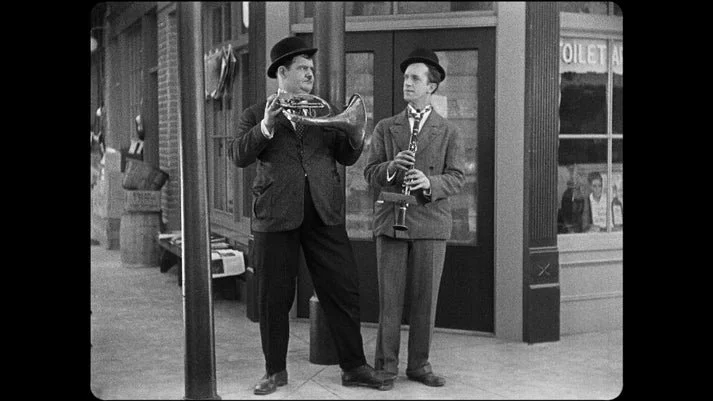by Mattie Lucas
Cinema from a Decidedly Queer Perspective
King Lear | 1987
For most of its life, the Cannon Group was a minor studio known for brawny B-movies like Death Wish, Cobra, Missing in Action, and Masters of the Universe. But during the 1980s, under the direction of co-owners Menahem Golan and Yoram Globus, who bought the company in 1979, Cannon also used some of its profits to take chances on risky auteur-driven projects in an attempt to gain some prestige. One such project was Jean-Luc Godard's King Lear, a deal Golan and Globus infamously made with Godard on a napkin at the Cannes Film Festival, where the pair were tenaciously courting filmmakers.
The Mother and the Whore | 1973
For many years, Jean Eustache's The Mother and the Whore was seen as a kind of white whale, a sort of right-of-passage for cinephiles both for its lack of availability and its gargantuan length. Nearly four hours long and long difficult to see, Eustache's seminal work of youthful malaise has been fully restored and is now widely available for the first time on 4K UHD from the Criterion Collection.
Laurel & Hardy: Year Two | 1928
Following their acclaimed Laurel & Hardy: Year One set, specialty label Flicker Alley has released a second look at the early days of their iconic partnership, compiling the ten silent shorts the pair made together in 1928 before transitioning to sound in 1929. While their sound films are arguably more well-known, the duo cut their teeth on silent comedy and were some of the few silent comedians to successfully transition from silents to the sound era.
Evil Does Not Exist | 2024
There is something almost unspeakably beguiling about Ryūsuke Hamaguchi's Evil Does Not Exist. The filmmaker behind Drive My Car (a 3-hour meditation on loneliness and Chekov that was so stunning even the Academy couldn't help but nominate it for Best Picture) and Wheel of Fortune and Fantasy is no stranger to thoughtful and introspective dramas.
Funny Girl | 1968
It's not often that you get to watch a star being born in real-time, but that's exactly what it is like to watch William Wyler's Funny Girl. Barbra Streisand would, of course, go on to star in A Star is Born in 1976, but Funny Girl was her star-is-born moment, and what a moment it was. Streisand was already a successful singer and Broadway actress, but it was her performance in Funny Girl and her subsequent Oscar win that helped turn her into an icon.
All of Us Strangers | 2023
It's difficult not to get personal writing about a film like Andrew Haigh's All of Us Strangers. I didn't really write about it when I first saw it back in December of last year. I managed a half-hearted piece for my top ten write-up (where it came in at number five), but it somehow felt too close, too raw, for me to fully grapple with.
Bless Their Little Hearts | 1983
Like its spiritual predecessor, Charles Burnett's Killer of Sheep (1978), Billy Woodberry's Bless Their Little Hearts focuses on a black working man in the African American Watts district of Los Angeles. Except in this case, Charlie Banks (Nate Hardman) is more of a *not* working man, because he finds himself perpetually un and under employed, spending his days at home with his harried wife, Andais (Kaycee Moore) and their children.
Farewell My Concubine | 1993
Upon its release in 1993, Chen Kaige's Farewell My Concubine became the first Chinese film to win the coveted Palme d'Or at the Cannes Film Festival, a prize it shared with Jane Campion's The Piano in a rare tie. The film was banned and censored both in its native China and in the United States thanks to Miramax's Harvey Weinstein, who reportedly cut around 20 minutes from the film's theatrical cut, only to release the complete version on home video, which remains intact to this day.









A quick look at post-COVID box office returns might suggest that the R-rated comedy is dead. There have been a couple of exceptions (2023's No Hard Feelings springs to mind ), but it's notable that two of this year's best R-rated comedies, You’re Cordially Invited and Bridget Jones: Mad About the Boy, movies that once upon a time would have been surefire theatrical hits, went straight to streaming in the United States. The days of Wedding Crashers (2005), The 40-Year-Old Virgin (2005), and Superbad (2007) seem well behind us, not to mention more recent hits like Blockers (2018) and Game Night (2018).